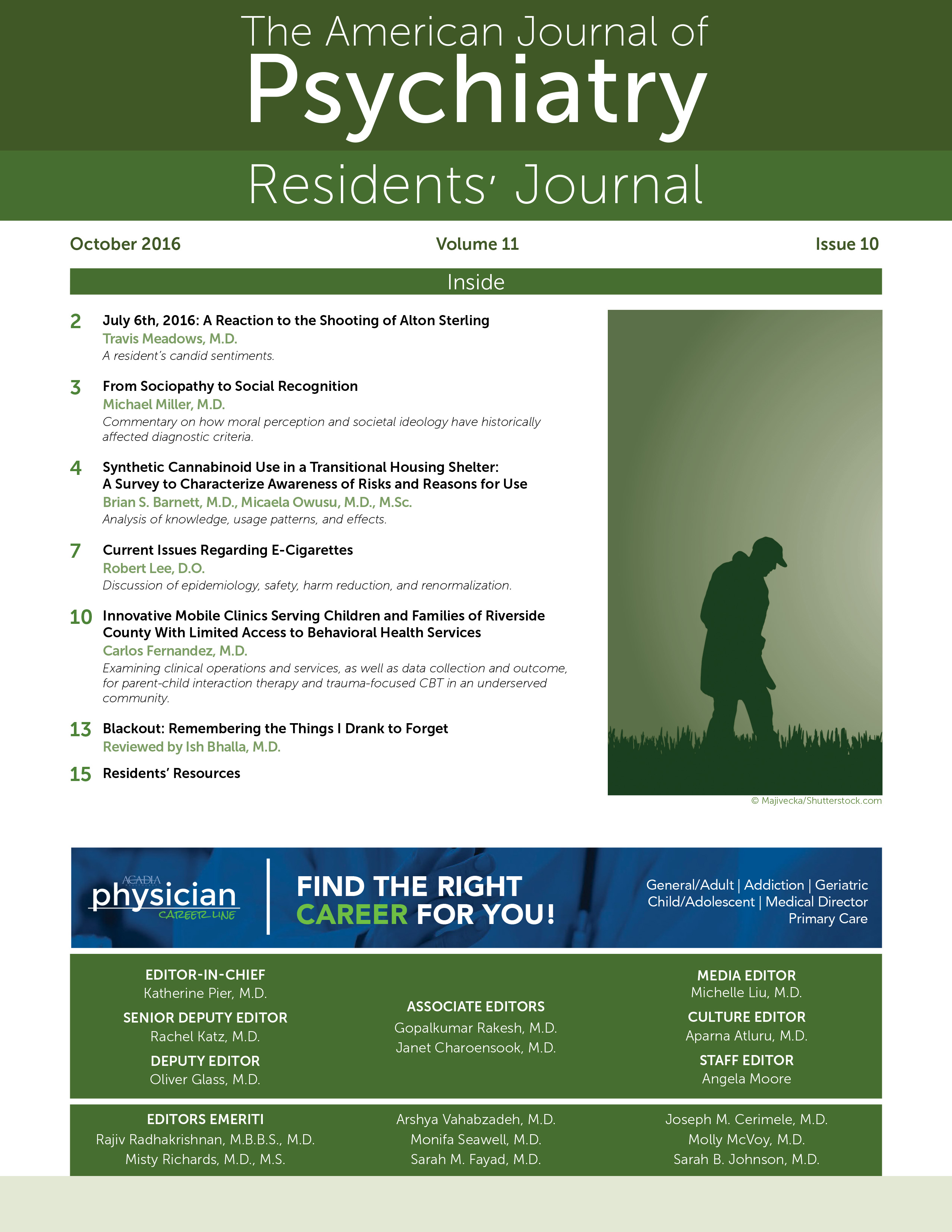“I want my daddy.”
Through a river of tears, these words were spoken by the eldest son of Alton Sterling as he broke down watching his mother, newly widowed, as she addressed the public regarding the murder of her husband by police officers. As I watched this video and heard the words of this broken young man, my heart ached, my eyes swelled, and I too felt broken.
I am angry. I am beyond tired. I am rattled at my core.
I fear that these feelings will continue, and in one form or another, these episodes will recur. I recognize that my country, my home, is critical of zoo keepers killing a gorilla who may have threatened the life of a small child; relatively, I wonder if the cops who savagely murdered a human being, pinning him to the ground after tazing him could ever be appropriately denounced.
I am a black man. I am the proud son of a black woman, and I am a loving uncle to a black child. I am also a black psychiatrist. It is my personal and professional responsibility to speak up for a community that is being repeatedly traumatized and victimized. What would once have been called paranoia toward law enforcement becomes justified when a person has to fear for his life because of his race. This should not be the case.
As much as I want to be resilient, to feel resilient, and to carry this weight with a raised chin, I cannot. Instead, I am anxious. My thoughts are scattered. My fingers are tense. My mood is soaked in grief. While this is my reaction, I also know that it is a shared experience by the black community.
If you take from my words nothing else, please let it be an increased sensitivity to and awareness of the impact that events like the shooting of Alton Sterling have on the black community. We are forced to be weary of the men and women entrusted to protect our rights and our lives. We are weighted with the task of maintaining a positive self-image when it would seem the complexion of our skin is viewed as a target for violence and aggression. We are left without peace, but instead a constant worry.
Tomorrow I will be expected to have healed my wounds and be ready to lend a listening ear and comforting voice to others. They will look to me seeking confirmation, validation, solutions. They will not realize that looking back at them is the face of someone who is, himself, struggling to cope.
Acknowledgments
The author acknowledges the families of the victims of recent social injustices for sharing their stories. The author also thanks his mother for helping to give him the strength to write this piece, as well as Katherine Pier, M.D., for her encouragement and editorial assistance.
